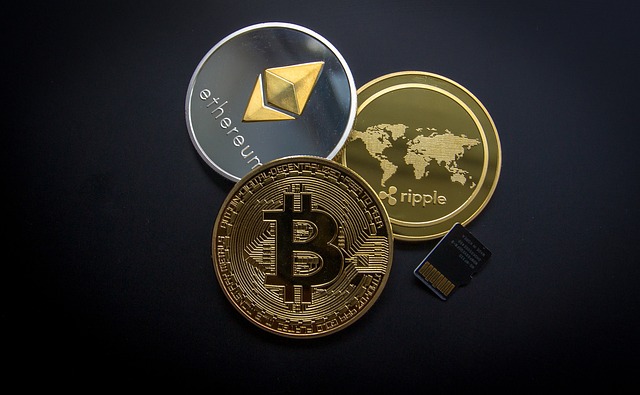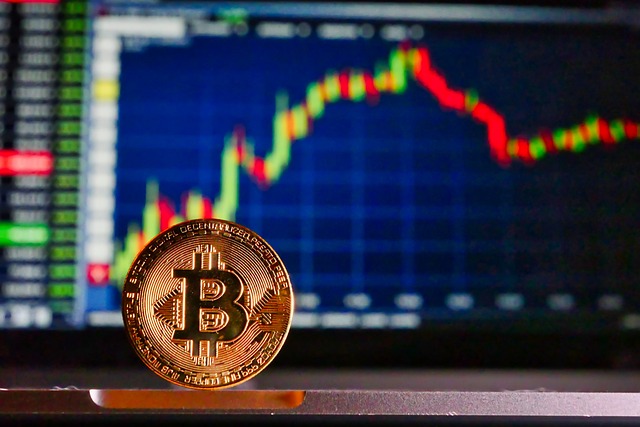Mastering Crypto Wallets: A Comprehensive Guide to Safe and Effective Crypto Management
Author: Jameson Richman Expert
Published On: 2025-04-20
Prepared by Jameson Richman and our team of experts with over a decade of experience in cryptocurrency and digital asset analysis. Learn more about us.
In the ever-evolving world of cryptocurrencies, understanding how to effectively manage your assets is crucial. This article dives deep into the realm of crypto wallets, providing insights, tips, and personal experiences that can help both beginners and seasoned investors navigate this complex landscape. My journey through the crypto space has been filled with ups and downs, but through trial and error, I've discovered the best practices for managing cryptocurrencies securely and efficiently.
When I first entered the crypto world, I was overwhelmed by the sheer volume of information available. I tried various crypto wallets, from hardware to software solutions, and faced numerous challenges along the way. My early experiences were marked by mistakes, such as choosing wallets without proper security features or failing to back up my private keys. These failures taught me invaluable lessons that I wish to share with you.

Understanding Crypto Wallets
Crypto wallets are essential tools for anyone involved in the cryptocurrency market. They allow users to store, send, and receive digital currencies like Bitcoin, Ethereum, and countless altcoins. However, not all wallets are created equal, and choosing the right one can be daunting.
There are two main types of wallets: hot wallets and cold wallets. Hot wallets are connected to the internet and are more convenient for frequent transactions, while cold wallets are offline and offer enhanced security for long-term storage. My early preference for hot wallets led to a few unfortunate hacks, which taught me the importance of diversifying my storage methods.
Beyond these classifications, wallets can also be categorized as desktop wallets, mobile wallets, and web wallets. Each type has its unique advantages and drawbacks. For instance, desktop wallets provide greater control over your private keys, but they can be vulnerable to malware if your computer is compromised. Mobile wallets, on the other hand, offer ease of use for everyday transactions but may expose you to risks if your mobile device is lost or stolen. Web wallets, while accessible from any device with internet access, often rely heavily on third-party security measures.
Choosing the Right Wallet
When selecting a crypto wallet, consider factors like security, user-friendliness, supported currencies, and compatibility with different blockchain networks. I initially overlooked these aspects, leading to frustration and financial loss. After much research and experimentation, I found that wallets like Binance Wallet and MEXC Wallet offered robust security features and an intuitive interface. These platforms not only safeguarded my assets but also provided seamless trading experiences.
Additionally, I discovered that hardware wallets like Ledger and Trezor were excellent options for long-term storage. They provide a physical device to store your keys offline, which significantly reduces the risk of hacks. Investing in a hardware wallet was one of the best decisions I made, as it gave me peace of mind knowing my assets were secure. Furthermore, hardware wallets often come with additional features like passphrase protection and secure chip technology, enhancing their overall security.
The Importance of Security
Security cannot be overstated when it comes to crypto wallets. I learned this the hard way after falling victim to a phishing attack that drained my hot wallet. Since then, I've adopted several security measures, including enabling two-factor authentication (2FA) and using unique, complex passwords for each wallet. These practices have not only improved my security but also helped me regain confidence in managing my assets.
Moreover, I recommend regularly updating your wallet software and staying informed about potential vulnerabilities. The crypto landscape is constantly changing, and what might be secure today could become vulnerable tomorrow. Staying proactive is key to protecting your investments. Additionally, consider utilizing hardware wallets that support multi-signature transactions, which require multiple approvals before a transaction can be executed, further enhancing security.

The Role of Crypto Exchanges
In addition to wallets, crypto exchanges play a significant role in managing your digital assets. I initially struggled with choosing the right exchange, often falling for platforms that offered low fees but lacked security features. However, after extensive research, I found exchanges like Bitget and Bybit to be reliable and secure options.
These exchanges not only provide a wide range of cryptocurrencies but also offer various trading tools and features. They have user-friendly interfaces that make trading accessible for newcomers. Additionally, both exchanges implement robust security measures, including cold storage for the majority of funds, ensuring that your assets are safe. Furthermore, many exchanges also provide educational resources, helping new traders understand market dynamics and trading strategies.
Backing Up Your Wallet
One of the most critical aspects of managing crypto wallets is backing them up. Early on, I neglected this step and faced dire consequences when I lost access to my wallet due to a computer crash. Now, I ensure that I back up my wallets regularly, storing recovery phrases in multiple secure locations. This simple practice has saved me from potential disasters and can safeguard your assets as well. Always remember to use a secure method for storing your backups, such as a fireproof safe or encrypted digital storage.
Keeping Track of Your Investments
Tracking investments can be challenging in the fast-paced crypto market. I initially relied on spreadsheets, which proved cumbersome and prone to errors. Eventually, I discovered portfolio tracking apps that provided real-time updates and analytics. These tools allow me to monitor my investments, set price alerts, and analyze trends, making it easier to make informed decisions.
Some popular options include CoinMarketCap and Blockfolio. By integrating these tools into my daily routine, I've gained better insights into my portfolio's performance and can react quickly to market changes. Moreover, many of these apps offer features like tax reporting and profit-loss calculations, which can significantly simplify the financial aspect of crypto trading.

Learning from Experience
Throughout my journey in the crypto space, I've learned that patience and continuous education are paramount. The market is volatile, and mistakes can be costly. I encourage everyone to educate themselves on the various aspects of cryptocurrency, including market trends, trading strategies, and wallet management. The Future of Crypto Trading in 2025 provides valuable insights into upcoming trends, and The Hidden Secrets of Crypto Wallets Revealed dives deeper into wallet management strategies.
Additionally, exploring the impact of AI on crypto trading can provide a competitive edge. Check out The Future of AI Crypto Trading Bots to understand how technology is reshaping the trading landscape. Finally, uncovering The Hidden Secrets of Crypto Coins That Experts Don’t Want You to Know can reveal strategies that may help you succeed in your crypto endeavors.
Conclusion
In conclusion, mastering crypto wallets is an ongoing journey that requires dedication and a willingness to learn from mistakes. By understanding the various types of wallets, implementing robust security measures, and choosing the right exchanges, you can manage your crypto assets effectively. Remember, the crypto market is ever-changing, and staying informed will help you navigate the challenges and seize the opportunities that come your way.
As I reflect on my experiences, I realize that the lessons learned through trial and error have shaped my approach to cryptocurrency. Embrace the learning process, stay curious, and don’t be afraid to make mistakes. They are often the best teachers in the world of crypto.
Additional Resources and Tools
To further enhance your crypto journey, consider utilizing various resources and tools that can aid in your understanding and management of cryptocurrencies. Here are some recommended tools and platforms:
- CoinGecko: A comprehensive cryptocurrency data platform that provides real-time information on prices, market capitalization, trading volume, and historical data for thousands of cryptocurrencies. Users can create watchlists and track their favorite assets efficiently.
- TradingView: A powerful charting tool that enables you to analyze price trends, set alerts, and share your insights with the trading community. It offers a plethora of technical analysis tools and indicators, allowing for refined trading strategies and insights.
- CryptoCompare: Offers live price data, portfolio tracking, and comprehensive comparison tools to help you make informed decisions. This platform also features news updates and market analyses, which are invaluable for keeping track of market movements.
- DeFi Platforms: Explore decentralized finance platforms like Uniswap and Aave for earning yields on your crypto assets through lending and liquidity provision. Understanding the mechanics of DeFi can also open avenues for innovative investment strategies, such as yield farming and staking.
- Crypto Tax Software: Tools like Koinly and CoinTracking can simplify the tax reporting process by tracking transactions and calculating gains/losses automatically, ensuring compliance with local regulations. This is particularly important for traders with multiple transactions across various platforms.
- Blockchain Explorers: Websites like Etherscan and Blockchair allow users to view transaction histories, wallet balances, and contract details on specific blockchains, providing transparency and ease of tracking.
By leveraging these resources, you can enhance your knowledge and skills, making you a more informed investor in the dynamic world of cryptocurrencies. Additionally, consider joining online forums and communities where experienced traders share their insights and strategies, which can further enrich your understanding of the crypto landscape.

Frequently Asked Questions (FAQs)
1. What is the best type of crypto wallet for beginners?
For beginners, a user-friendly mobile wallet or a reputable web wallet is often the best starting point. These wallets typically have intuitive interfaces and are accessible on-the-go. As you gain more experience, you may want to consider transitioning to a hardware wallet for added security. Some popular beginner-friendly options include Coinbase Wallet and Trust Wallet, known for their ease of use and security features.
2. How do I keep my crypto wallet secure?
To keep your crypto wallet secure, enable two-factor authentication (2FA), use strong, unique passwords, regularly update wallet software, and consider using hardware wallets for long-term storage. Additionally, be cautious of phishing attempts and avoid sharing sensitive information. It’s advisable to frequently check the security settings of your wallets and exchanges to ensure they are up to date.
3. Can I recover my crypto wallet if I lose my device?
Yes, most wallets provide recovery phrases or private keys that allow you to restore your wallet on a different device. It is essential to back up this information securely to prevent loss of access to your assets. Write down your recovery phrase on paper and store it in a secure location, away from potential damage or theft.
4. What are the risks associated with using crypto exchanges?
While crypto exchanges provide a platform for trading, they also present risks such as hacking, regulatory changes, and potential liquidity issues. It's crucial to choose reputable exchanges, implement security measures, and be aware of the risks involved in trading. Additionally, consider keeping only a small portion of your assets on exchanges and transferring the majority to your personal wallets for added security.
5. How often should I back up my crypto wallet?
You should back up your crypto wallet whenever you make significant changes, such as adding new assets or making transactions. Regularly storing recovery phrases and private keys in multiple secure locations is also recommended. In addition, consider setting a reminder to review and back up your wallet at regular intervals, such as monthly or quarterly.
Final Thoughts
Navigating the world of cryptocurrencies can be challenging, but with the right knowledge and tools, you can manage your digital assets confidently. Always prioritize security and stay informed about the latest trends and technologies in the crypto space. By doing so, you will be well-equipped to face the evolving challenges of cryptocurrency management and can take advantage of the opportunities that arise in this dynamic market.
As you embark on this journey, remember that the world of crypto is not just about financial gain; it’s about innovation, community, and the potential for creating a decentralized future. Embrace the learning process, stay curious, and don’t be afraid to make mistakes. They are often the best teachers in the world of crypto.